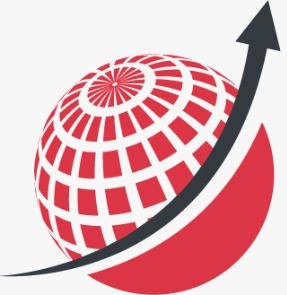Polymer concrete is a form of concrete that utilizes polymer in place of lime-based cements to function as binding material. In certain instances, polymer is used with Portland cement to create Polymer Modified Concrete (PMC). In stark contrast to conventional concrete, the R&D of polymer concrete is relatively recent and was primarily conducted by the former Soviet Union, Germany, Japan, and the US during the Cold War.
Eco-Friendly, High Quality, and Tough as Nails – Benefits Manifold Drive Polymer Concrete Market
A key driver stimulating the growth of the polymer concrete market is the multifunctionality of the material. Polymer concrete has significantly greater tensile strength, superior quality adhesion, lower permeability to water, and higher chemical resistance when compared to conventional cement. Polymer concrete can be deployed to great effect in marine works, water & sewage systems, nuclear power plants, industrial tanks, or even infrastructure projects. Another important aspect is the shift towards sustainable development witnessed across markets. Polymer concrete maximizes resource reuse as it can be prepared from rock dust, fly ash, and waste glass. In addition, most polymer concretes demonstrate outstanding adhesion with stones, bricks, and ceramics, making renewal easily achievable.
Request a sample copy of Global Polymer Concrete Market report @ https://www.crediblemarkets.com/sample-request/polymer-concrete-market-105692
Good Things Don’t Come Cheap – High Cost Stifles Polymer Concrete Market
One of the main challenges putting a pause on uninhibited growth of the polymer concrete market is its high cost when compared to conventional concrete. It is economically unfeasible to use polymer concrete for complete layer constructions, meaning it is only preferred for surface layer application. Furthermore, the high cost of polymer concrete makes it natural for cheaper competitors such as geopolymers to emerge that are not only cheaper, but also reputed to be cleaner. Geopolymer is claimed to be twice as strong in compression, thrice as strong in flexure, and can be set up in a single day, making it a compelling alternative to polymer concrete.
Epoxy Polyester Key Component in the Construction Industry
In terms of product types, the polymer concrete market can be broadly classified into epoxy, polyester, PMC, acrylate, latex, and furan polymer concrete. Epoxy polyester concrete is particularly sought after in the construction industry on account of its higher vibration resistance, excellent adhesion to metal surfaces, and better shock resistance. On the other hand, PMC has a major cost advantage compared to other options available in the polymer concrete market giving it a considerable market share.
Asia’s Way is the Highway – Colossal Projects in China, India, and Indonesia
The primary users in the polymer concrete market comprise infrastructure, residential, and non-residential projects. Infrastructure projects had a huge lead during the period of the study, primarily as a result of government efforts to focus on infrastructure development. Polymer concrete is used to great effect as a building block in parking lots, dams, and surface roads. Booming economic growth in China and India for the past two decades has been immensely beneficial for the APAC polymer concrete market as these two giants alone accounted for more than half of paved lane additions globally. In addition, Indonesia has announced infrastructure projects of more than $400 billion for 2020 to 2024 with twenty five new airports, power plants, and rapid transit projects in the pipeline.
Polymer Concrete Market Abuzz with Activity
The major stakeholders actively involved in the polymer concrete market include Bouygues S.A, ACO Group of Companies, BASF, Forte Composites Inc, Kwik Bond Polymers, Sika, ErgonArmor, and Crown Polymers. In 2018, Sika inaugurated two new plants in the capital Astana and another in the city Atyrau to fuel the substantial demand for concrete in Kazakhstan. This is also anticipated to benefit Kazakhstan’s thriving oil & gas industry around Atyrau as it will link the Tengiz oil field with the Prorva access channel.
Buy this Report Now @ https://www.crediblemarkets.com/reports/purchase/polymer-concrete-market-105692?utf8=%E2%9C%93&license_type=single_user
Is COVID-19 Cause for Concern for the Polymer Concrete Market?
As of May 2020, countries worldwide are taking no chances with COVID-19 and have unveiled stimulus packages worth billions of dollars to salvage their battered economies. While it may seem that the construction industry will be irreparably damaged, all is not yet doom and gloom. There is an expectation that projects underway will be completed once restrictions ease with the slowdown only temporary in nature, unlike the one in 2008. Nonetheless, China’s critical role in the global supply chain and its virtually limitless need for roads, dams, and energy plans could have a substantial impact on polymer concrete demand and supply in the short term. There might be price fluctuations with project funding a key challenge. Major companies in the polymer concrete market may decide to adopt a wait and wait approach. In conclusion, the polymer concrete market is ever changing at the moment, but the long-term prospects are likely to be bright.
Browse Full Report @ https://www.crediblemarkets.com/market-analysis/polymer-concrete-market-105692
KEY QUESTIONS ANSWERED IN THE REPORT
- What is the market size and growth rate of the global and regional markets by various segments?
- What is the market size and growth rate of the market for selective countries?
- Which region or sub-segment is expected to drive the market during the forecast period?
- What factors are anticipated to impact demand and supply trends in the market during the forecast period?
- What factors are likely to drive market revenue growth during the forecast period?
- What are the key technology and other trends shaping the market?
- What are the key opportunities in the market?
- What are some of the strategies implemented by key companies operating in the market?
- What is the COVID-19 impact on the market?






